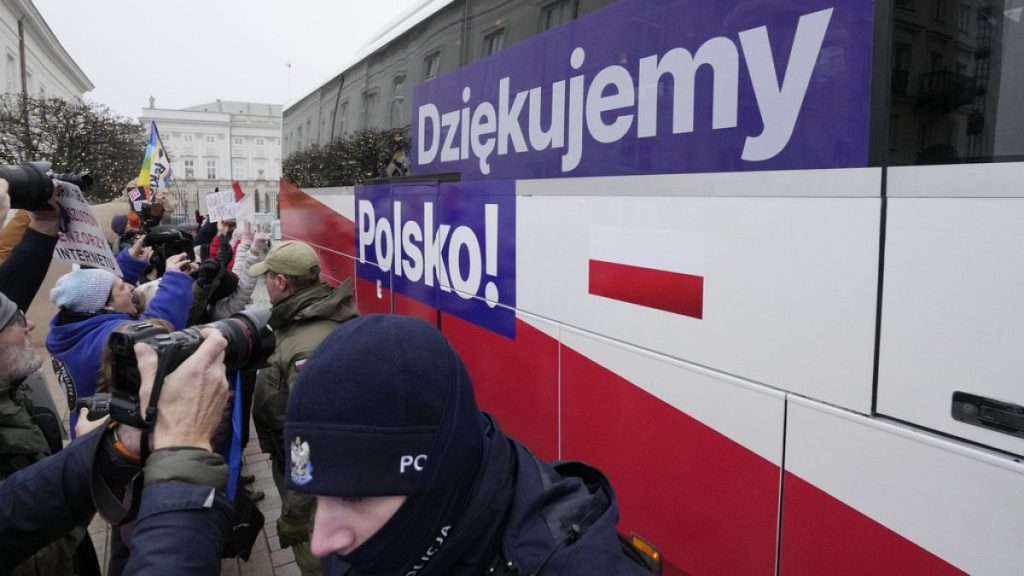The Conservative Law and Justice party (PiS) in Poland presented its candidates for the European Parliament during a convention in Warsaw. PiS politicians warned against what they termed as the European elites, emphasizing the need to defend Europe. Party leader Jarosław Kaczyński rejected the European Green Deal, arguing that it would be harmful to Polish agriculture and lead to its liquidation. He expressed concerns about higher energy and transportation prices that could result from the Green Deal, impacting the freedom to travel based on the cost of airline tickets. Kaczyński announced Jacek Emil Saryusz-Wolski, a former Vice-President of the European Parliament, as a candidate for the Polish EU Commissioner position representing the constituency of Łódź in the European Parliament.
During the kick-off of their European election campaign, Poland’s former ruling party PiS emphasized the importance of defending Europe against perceived threats from the so-called European elites. Party members at the convention in Warsaw stressed the need to reclaim Europe as a community of states and nations. Jacek Saryusz-Wolski, one of PiS’ MEPs, emphasized the need to take back Brussels and work towards a more cohesive European community. The party’s rejection of the European Green Deal was a central point of discussion, with concerns raised about the potential negative impact on Polish agriculture and overall prices, particularly in energy and transportation. These issues were seen as threats to freedom, including the ability to travel based on the affordability of airline tickets.
The presentation of Jacek Emil Saryusz-Wolski as a candidate for the Polish EU Commissioner position highlighted PiS’ focus on reshaping the leadership in Brussels to better represent Poland’s interests. The party’s move to nominate Saryusz-Wolski, a former Vice-President of the European Parliament, indicated a strategic effort to gain influence within the European Union. By positioning themselves with candidates who have experience and knowledge of EU institutions, PiS aimed to strengthen their voice and advocate for policies that align with their vision for Poland and Europe. This strategic approach reflected the party’s goal of advocating for stronger national interests within the context of the European Union.
PiS’ emphasis on reclaiming Europe as a community of states and nations signaled a push for greater sovereignty and autonomy within the European Union framework. The party’s rejection of the European Green Deal demonstrated a commitment to safeguarding Polish interests, particularly in the agricultural sector. Concerns about potential price increases and the impact on freedom, such as travel expenses, were central to PiS’ argument against the Green Deal. By framing these issues as threats to Polish sovereignty and well-being, the party sought to rally support for their candidates and policies ahead of the European Parliament elections. This focus on defending national interests within the context of a broader European community was a central theme of PiS’ election campaign.
Overall, the PiS party’s presentation of candidates for the European Parliament highlighted their commitment to defending Poland’s interests and sovereignty within the European Union. By warning against the perceived threats of European elites and rejecting policies like the Green Deal, PiS sought to position itself as a champion for Polish values and priorities in the European arena. The nomination of experienced candidates like Jacek Emil Saryusz-Wolski underscored the party’s strategic approach to gaining influence within EU institutions and advocating for policies that align with their vision for Europe. As the election campaign progressed, PiS’ focus on reclaiming Europe as a community of states and nations continued to shape their messaging and policies, resonating with audiences who shared similar concerns about the future of Poland and its role within the European Union.


